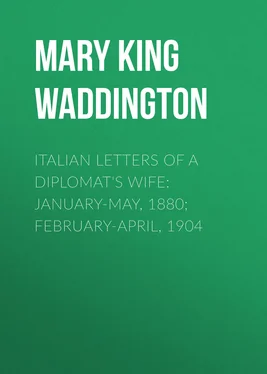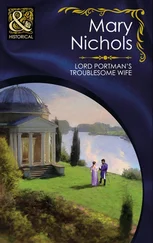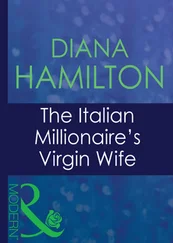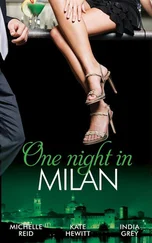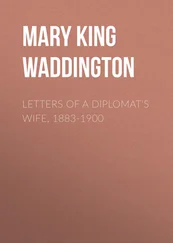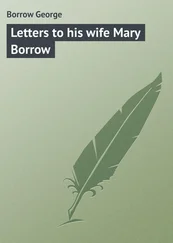Mary Waddington - Italian Letters of a Diplomat's Wife - January-May, 1880; February-April, 1904
Здесь есть возможность читать онлайн «Mary Waddington - Italian Letters of a Diplomat's Wife - January-May, 1880; February-April, 1904» — ознакомительный отрывок электронной книги совершенно бесплатно, а после прочтения отрывка купить полную версию. В некоторых случаях можно слушать аудио, скачать через торрент в формате fb2 и присутствует краткое содержание. Издательство: Иностранный паблик, Жанр: Биографии и Мемуары, История, foreign_edu, foreign_antique, foreign_prose, на английском языке. Описание произведения, (предисловие) а так же отзывы посетителей доступны на портале библиотеки ЛибКат.
- Название:Italian Letters of a Diplomat's Wife: January-May, 1880; February-April, 1904
- Автор:
- Издательство:Иностранный паблик
- Жанр:
- Год:неизвестен
- ISBN:нет данных
- Рейтинг книги:3 / 5. Голосов: 1
-
Избранное:Добавить в избранное
- Отзывы:
-
Ваша оценка:
- 60
- 1
- 2
- 3
- 4
- 5
Italian Letters of a Diplomat's Wife: January-May, 1880; February-April, 1904: краткое содержание, описание и аннотация
Предлагаем к чтению аннотацию, описание, краткое содержание или предисловие (зависит от того, что написал сам автор книги «Italian Letters of a Diplomat's Wife: January-May, 1880; February-April, 1904»). Если вы не нашли необходимую информацию о книге — напишите в комментариях, мы постараемся отыскать её.
Italian Letters of a Diplomat's Wife: January-May, 1880; February-April, 1904 — читать онлайн ознакомительный отрывок
Ниже представлен текст книги, разбитый по страницам. Система сохранения места последней прочитанной страницы, позволяет с удобством читать онлайн бесплатно книгу «Italian Letters of a Diplomat's Wife: January-May, 1880; February-April, 1904», без необходимости каждый раз заново искать на чём Вы остановились. Поставьте закладку, и сможете в любой момент перейти на страницу, на которой закончили чтение.
Интервал:
Закладка:
Our Talleyrand dinner last night was handsome and pleasant. He was for years French Ambassador at Petersburg (Baron Charles de Talleyrand-Périgord), and is the type of the clever, old-fashioned French gentleman and diplomatist. He married a Russian, Mlle. Bernadaky. She is very amiable, has a beautiful voice and beautiful jewels. I had Carlo Alessandri next to me, and we plunged into old times. After dinner Talleyrand and W. talked politics in the fumoir. He is of course quite "d'un autre bord" and thinks Republican France "grotesque," but W. said he was so moderate and sensible, not at all narrow-minded, understanding that a different opinion was quite possible, that it was interesting to discuss with him. Talleyrand confided to Mary afterward that he couldn't understand a man of her brother's intelligence and education being a Republican.
Madame de Talleyrand didn't sing, had a cold. I was very sorry as I told her I should have liked to hear her sing again "Divinité du Styx." It will be always associated in my mind with the French-German war when we were all at Ouchy together hearing fresh disasters every day.
This afternoon we went to have tea with "Ouida" 16 16 Mlle. de la Ramée.
at her villa outside Florence. She was most anxious W. should come to her—which he agreed to do—though afternoon visits are not much in his line. As we were rather a large party we went out in detachments, and Madame de Tchiatcheff drove me. We arrived before the Bunsens and W. Ouida came to the gate to meet us, and Madame Tchiatcheff named me. She was civil, but before I had time to say that M. Waddington was coming in another carriage, she looked past me, saying, "Et Monsieur Waddington—il ne vient donc pas," with such evident disappointment and utter indifference to the presence of Madame Waddington that I was rather taken aback; but I suppose geniuses must not be judged like other people. I was rather disappointed in her appearance. I expected to see her dressed either in "primrose satin with trails of white lace," or as an Italian peasant, and she really looked like any one else—her hair cut short and a most intelligent face. She was interesting when she talked about Italy and the absolute poverty of the people. She spoke either French or English, both equally well. When the visit had been talked of at home we had told W. he must read, or at any rate look over one of her books. I didn't think he could undertake one of her long novels, "Idalia" for instance, where the heroine wanders for days through wood and dale attired in a white satin dress, and arrives at her destination looking like "a tall, beautiful, pure lily"; but I think he might like one of her short Italian stories, which are charming, such beautiful descriptions. I always remember one of her sentences, "There is nothing in the world so beautiful as the smile of Italy to the awakening Spring." One felt that to-day in the garden, every bud was bursting, everything looked green and fresh and young.
Our dinner at home to-night was most agreeable. We had Mlle. de Weling, a great friend of the Bunsens, a clever, interesting woman whose girlhood was passed at the old Nassau castle at Bieberich on the Rhine. Her mother was one of the Duchess's ladies. I know the place well, and used often to walk through the beautiful park to the Rhine when I was staying with Mary. It is quite shut up and deserted now. The old Duke held out against United Imperial Germany, and never lived in his Schloss after Nassau was annexed. It is a grand old house with all its great windows and balconies facing the Rhine. One could quite imagine an animated court life (small court) there, with music, and riding, and excursions on the river. It is rather melancholy to see such a fine old place deserted.
We had, too, Comandi, an Italian who occupies himself with orphan boys, and has a home for them near here somewhere in the country which we are going to see some day. Anna de Weling, too, has founded one or two small homes in different parts of Germany. She read us a letter the other day from one of her boys, quite grown up now, whom she had placed. It began "Wir brauchen Beinkleider" (we need trousers)—so naïf. The conversation was almost entirely in Italian as Comandi speaks no other language. All the Bunsens speak of course perfectly—they lived in Italy for so many years at the beginning of their diplomatic career. Mrs. Waddington is quite wonderful, speaks and reads it perfectly. Her nice little parlatrice is devoted to her.
February 19, 1880.We have had two nice days. Yesterday we walked straight across the bridge to the Piazza del Duomo—walked about the Cathedral and the Baptistery trying to make out the Saints' processions, and figures on the marvellous bronze doors—but it would take weeks of study to understand them. I was tired, and sat (very uncomfortably) on a sort of pointed stone near the gates while W. examined them. I really think I like the Piazza and the open air and the street life as much as anything else. There was so much movement, flower stalls, fruit, cakes, those extraordinary little straw bottles of wine, children playing and tumbling all over the place (evidently compulsory education doesn't bother them much), and always quantities of men standing about doing nothing, wrapped up in their long cloaks, but what a wonderful cadre for it all. The Duomo, Palazzo Vecchio, Loggia, etc.—one can't imagine now the horrors that have been perpetrated in that very square. I told the family the other day I wanted to read "Nicolo dei Lapi" over again, and they all jeered at me; but I must get it somewhere; it will take me straight back to Frascati and the long hot days of the cholera summer when I was reading it, and trying so hard with my imperfect and school-girl translation to make you understand the beauty and horrors of the book.
I was telling Mrs. Waddington the other day of our life at Frascati—the great cholera year at Albano (1869), when so many people died—the Dowager Queen of Naples, Princess Colonna, and Cardinal Altieri, who came straight out to his villa as soon as the cholera broke out (which it did quite suddenly). He was wonderful—went about everywhere in all the poor little houses, relieving and encouraging the sick and dying, holding up the cross to the poor dim eyes when life was too nearly gone for any words to avail; and finally was struck down himself and died in two days. How terribly lonely and cut off we felt—Dr. Valery was the only person we saw. He was allowed to come out every day from Rome, but was fumigated at the station at Frascati, and again in Rome when he got back, obliged to change his clothes outside the gate before coming into the city. We were never at all nervous about the cholera. I don't think there was one case at Frascati, and of course all our thoughts were centred in that great big room with its pink walls and mosaic floor where father 17 17 Charles King, President of Columbia College, father of Madame Waddington.
lay desperately ill. It seems like a dream now, those hot summer nights, when we used to go out on the terrace (upon which his room opened) to get bouillon, ice, etc., and we fancied we could see the cloud of disease hovering over the Campagna. When it was moonlight, and such moonlight, that beautiful golden, southern moon, we saw a long white line in the distance—the sea. Circulation was very difficult, all the roads leading to Albano were barred, and guarded by zouaves; and of course we heard tales of horror from the Italian servants, always most talkative and graphic in their descriptions. However on the whole they behaved well. We used to ride every day, and always passed a little chapel on the way to Castel Gandolfo, which was filled with people kneeling and praying—a long line stretching out quite across the road to a little shrine just opposite. They used to make way for us to pass without getting off their knees, only stretching out their hands for anything the Principesse americane would give them.
Интервал:
Закладка:
Похожие книги на «Italian Letters of a Diplomat's Wife: January-May, 1880; February-April, 1904»
Представляем Вашему вниманию похожие книги на «Italian Letters of a Diplomat's Wife: January-May, 1880; February-April, 1904» списком для выбора. Мы отобрали схожую по названию и смыслу литературу в надежде предоставить читателям больше вариантов отыскать новые, интересные, ещё непрочитанные произведения.
Обсуждение, отзывы о книге «Italian Letters of a Diplomat's Wife: January-May, 1880; February-April, 1904» и просто собственные мнения читателей. Оставьте ваши комментарии, напишите, что Вы думаете о произведении, его смысле или главных героях. Укажите что конкретно понравилось, а что нет, и почему Вы так считаете.
